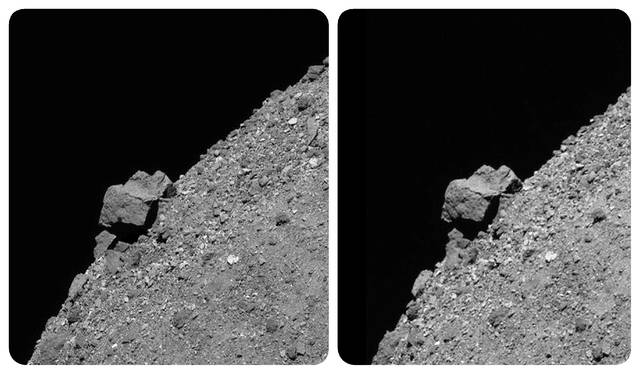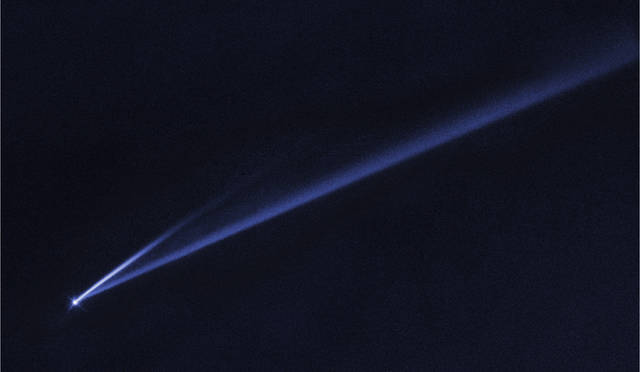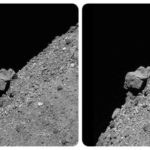CAPE CANAVERAL, Fla. — NASA has released a pair of artsy shots of two little asteroids.
Thursday’s picture shows an asteroid coming apart at its dusty seams, courtesy of the Hubble Space Telescope. Two long comet-like tails are streaming from asteroid Gault, a 2.5-mile-wide world that’s spinning so fast it’s shedding.
Photos released Wednesday focus on the even smaller space rock Bennu. The 3D images taken by NASA’s Osiris-Rex spacecraft, flying alongside Bennu, show a jagged boulder that’s 170 feet across.
A real-life rocker helped create these stereo images: Queen’s lead guitarist Brian May. May, who’s also an astrophysicist, joined the science team in January. He also is collaborating on NASA’s New Horizons spacecraft, which flew past the most distant object ever explored, Ultima Thule, on New Year’s Day.











